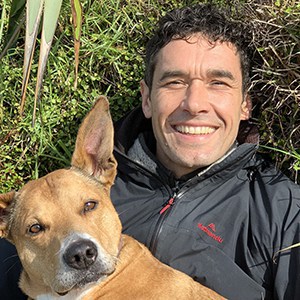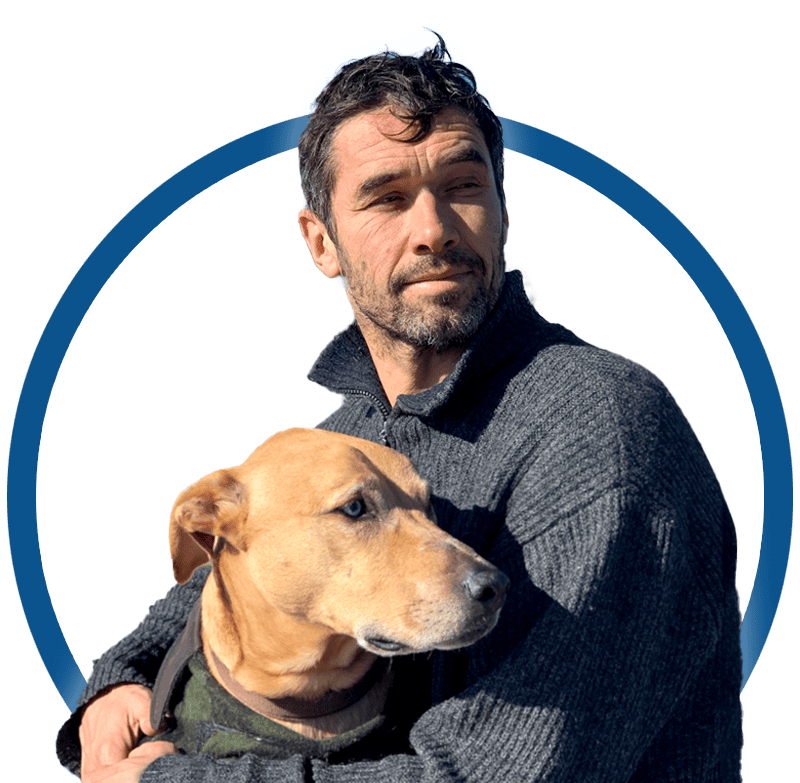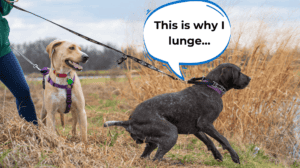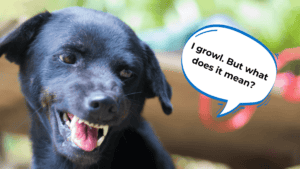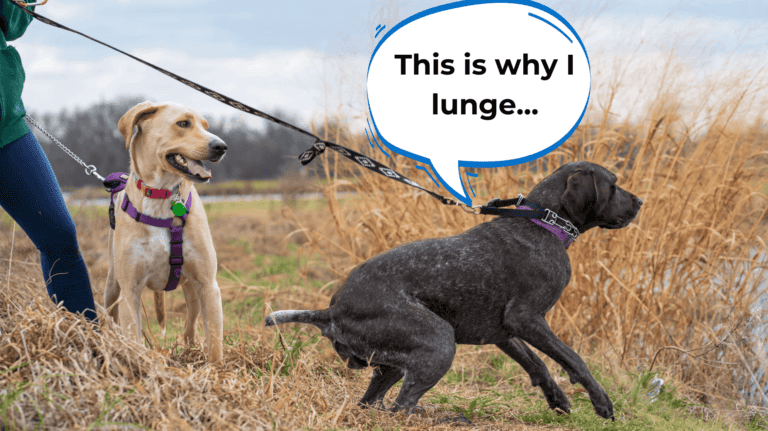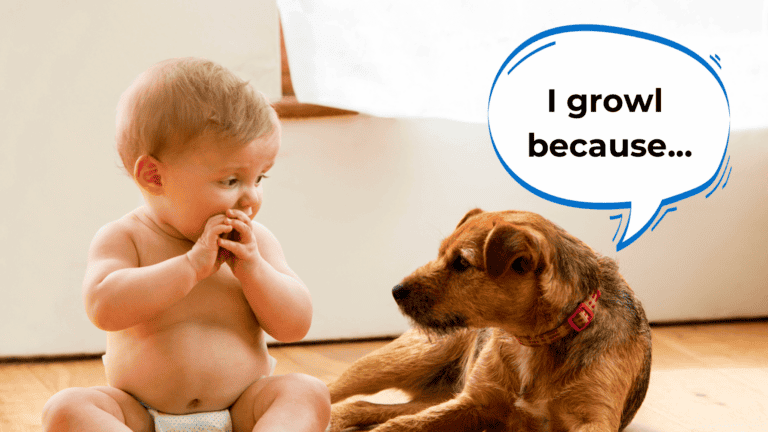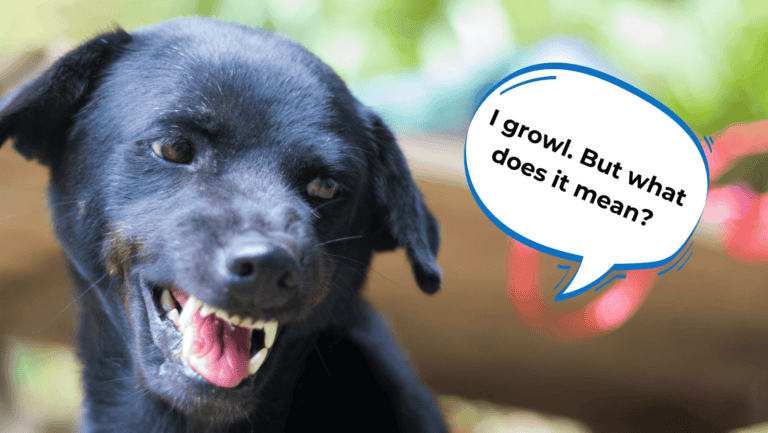Today’s Guest
Christina Burki – Animal Communicator
I’m so excited to introduce to you today’s guest, Christina Burki, an animal communicator that works to bring peace and understanding between animal parents and their pets.
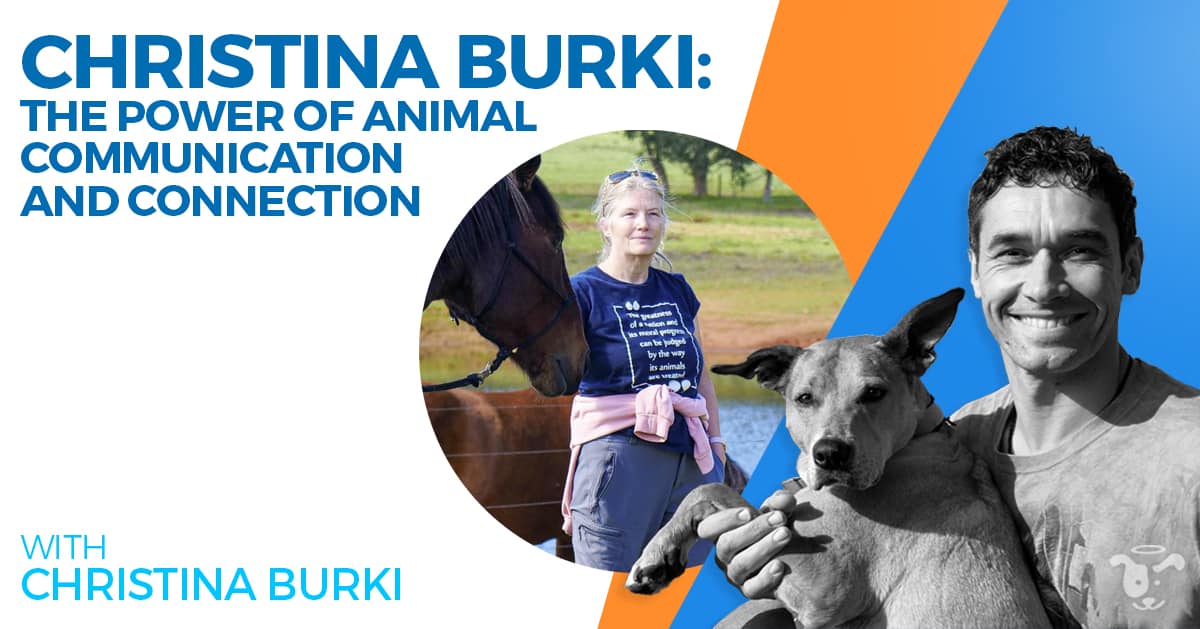
Christina’s journey began as a psychotherapist for humans. Everything changed when she adopted her first dog, a labrador, and decided to take a course on animal communication.
During the workshop, Christina realized she had a gift for communicating with animals who were willing to share their thoughts. At risk of being called crazy by her peers, she began reading animals in hopes of helping pet parents around the world.
If you have any interest in how Christina talks to animals, what they have to say, and want to hear some incredible stories from her work, this is a podcast you don’t want to miss!
You’ll Hear About
- [01:00] Who is Christina Burki
- [06:00] Christina’s first animal communication experience
- [08:00] Elle and Chris’s Story
- [10:30] Labrador’s Healing Kidney Story
- [14:00] Amazing Elephant Story
- [19:00] How Animal Communication Works
- [25:00] Christina’s Communication Services
- [28:00] Aggressive Horse Story
- [32:00] Stories On Crossing the Rainbow Bridge
- [39:00] Ubud’s Story
- [43:00] How to Connect with and Learn More About Christina’s Work
Links & Resources
- Website: https://www.animalcommunications.com.au/
- Facebook: https://www.facebook.com/animalconnectvision/
- Instagram: https://www.instagram.com/animal_connect/
- YouTube: https://www.youtube.com/channel/UCxt9i-HKLucfoSADc37uiog/videos
Learn more by tuning into the podcast!
Thanks for listening—and again, don’t forget to subscribe to the show on iTunes / Spotify to get automatic updates.
Cheers,

~Doggy Dan
|
Christina Burki: |
There is no such thing as normal. All the names you give yourself or those that others call you are just labels. You are not defined by them no matter how flattering or uncomplimentary they are. What defines you genuinely is your heart.
|
|
Doggy Dan:
[00:00:30] |
Okay guys, today, we have a fascinating lady with us named Christina. She's an animal communicator. So, if you're interested in kind of, is Dr. Doolittle real? Can that sort of thing actually happen? How does it work? How do you communicate with animals? Is it one way, is it two way? And what sort of things have they got to say? Then stay tuned because you're going to absolutely love this episode.
|
|
Voiceover: |
Welcome to the Doggy Dan Podcast Show, helping you unleash the greatness within your dog. |
|
[00:01:00] Doggy Dan:
[00:01:30] |
Hello, and welcome to another edition of the Doggy Dan Podcast Show. And as always, I'm really excited. I know I say that every time but it's true. Today, I am with Christina Burki, who is a Dutch Swiss Australian animal communicator. And I get excited when I'm talking to vets and when I'm talking to people who are behaviorists, but animal communicators, I get really excited, and especially chatting to Christina, who is just a beautiful person and has such a knowledge and depth of communicating with animals. I'm sure you're wondering what on earth that actually means. She's currently based in Australia, she grew up in the Netherlands where her house was situated close to the ocean, and farms. Her life has always involved animals, and that's how she basically developed a deep connection with the animals and learn to trust and communicate with them.
|
|
[00:02:00] |
She's a registered clinical member of the PACFA, which is Psychotherapy and Counseling Federation of Australia. And the Gestalt Australian and New Zealand, GANZ. So, lots of experience, lots of knowledge. Welcome, welcome, welcome, welcome, Christina.
|
|
Christina Burki: |
Thank you, Dan. I look really forward to have this dialogue with you. It's great.
|
|
Doggy Dan:
[00:02:30] |
Yeah. Well, look, I want to just throw it straight back at you and say over to you, tell us a little bit more very, very briefly, tell us what it is you actually do, because let's just get into the nitty gritty. We've all kind of heard of Dr. Doolittle who communicates with the animals. What is it you're actually doing then?
|
|
Christina Burki:
[00:03:00]
[00:03:30] |
Actually, I'm really talking with animals. So, you can see it is that I actually tap into their level of communication. It's not that when I see animals, of course, I get the messages, I see where they are at. But I really in my right ear, I understand what the animals are telling me. But for that, I actually need to be really silent. I connect with the universe, and then I'm tuning in with them so that I really understand them. You can say like, when you have radio station where you're searching the right frequency, that's what I'm doing. I give also training in animal communication, and I always say to my students, don't take me as your guru, find your own way, because some people actually get pictures, some people get only feelings. So it don't have to be animal communication like I hear it in my right ear, it can be anything and it's good.
|
|
Doggy Dan: |
Beautiful, beautiful.
|
|
Christina Burki: |
So that's in a nutshell.
|
|
Doggy Dan:
[00:04:00] |
That's really cool because even when you're saying that, I know I tend to get more of a feeling. And so, we'll touch into this more. I was with my wife today and we have a horse called Al. I can't read horses by looking at them, I can a little bit I guess, but my gut feel was what was going on. I was like, he's really deeply connected to me today. And my wife was like, yeah, he's so relaxed with you. But it was a gut feel more than actually hearing. So when you say you hear it in your right ear, just for those people who are probably wondering the same as me, does it almost sound like somebody speaking like the horse or the dog or the cat is actually speaking?
|
|
[00:04:30] Christina Burki:
[00:05:00] |
That's a good question because I have a son, he's 26. And he came into my training, and he said, but I don't hear it like you hear it. But maybe you can see it. When I start to talk with an animal and it's mainly actually by pictures on my laptop, first, I ask for the permission of the animal, if it's ready to talk with me. And then I actually start to write the whole conversation down. It's not like that I hear your words now so clear, but it comes internally. It is like within my ear, I hear it. And I have actually a written dialogue with the animal. It's like from the internal that I get it.
|
|
Doggy Dan: |
Yes. But it feels like it's coming from the ear rather than down in your throat or up in your head or the back of your mind.
|
|
Christina Burki: |
True.
|
|
[00:05:30] Doggy Dan:
[00:06:00] |
Yeah, that makes sense. Wow, how amazing. So tell us, when did this sort of develop? I'm looking forward to getting into the juicy stories, and being a bit of a scientist, I'm more of an engineer and I have a bit of a mathematical background, I want proof, I want evidence. So for those of you who are listening, we want evidence. What I love about this stuff is I know enough to know that there is plenty of evidence. If you just keep looking, there is something going on here. So stay tuned, guys, we're going to get there. What was my question, I've almost forgotten myself, sorry.
|
|
Christina Burki:
[00:06:30] |
You asked actually how it started. And that is actually just where you went to that's perfect, because I actually, in the beginning, I didn't they I to come out with it because first I was psychotherapist and I still am for human beings. And I went, actually, I got a Labrador, [Joyer 00:06:26] is her name. And we went to an animal psychologist for two year to train her to [inaudible 00:06:33] therapy dog. And then she said, actually, hey, there are workshops here with animal communication, would you like to go? And I saw, yeah, why not. So I went there and after two times being there, I felt like, hey, but that's what I am doing already.
|
|
[00:07:00] |
So, I actually started to talk more with friends, dogs and cats, but I didn't dare to come out because I saw like, oh my god, what will the people think of me, a psychotherapist actually talking with animals? That sounds like a witch. So I didn't.
|
|
Doggy Dan: |
You're worried you'll lose business because people will think you're crazy.
|
|
Christina Burki:
[00:07:30] |
Exactly. Exactly. So then I went from Switzerland to Australia, and I actually didn't sort of bring it into a business animal communication, but then a German lady said, oh, she had her cats in Germany and she would love to know how they are. So I said, like, "Hey, I'm not sure if it works because it's 20,000 kilometer distance, but give me pictures, I will give it a try." So I did, and I told her what her cats told me. And she said, "Hey, that's 100% spot on. It's like you know them. And thanks to that they are now in Australia because they told me they don't want to stay back, they want to be here."
|
|
[00:08:00] |
And then a couple, Elles and Chris are the names, they have a media business, and I actually connected with their cats in a shelter in Belgium. And they said, like, "Oh, can you tell them because the next day, they will get the vaccinations for the flight to Australia, that it's actually so they can see us?" So I did. And the next day, the shelter owner called Elles and said, "I'm not sure what happened, but otherwise, you can always go crazy in the drive to the vet, and on the bed of the vets, they nearly crashed, they were so relaxed."
|
|
[00:08:30] |
And then Elles said, "Yeah, I know because Christina talked with them." I actually also guided them by airplane. So I'm not in the airplane, but my communications from Germany to Australia, and also during the quarantine. And then Elle and Chris said, "Hey, my God, you have to get out in the world," and they made me a free web page, and they actually pushed me out to the world, and that was my start.
|
|
[00:09:00] Doggy Dan: |
That's your web page called animalcommunications.com.au?
|
|
Christina Burki: |
Yes, correct. Yes.
|
|
Doggy Dan: |
Wow. Beautiful, beautiful web page. So, just touching on your communication with the animals, is two way, you can hear them and you can also kind of communicate and almost speak to them. Is that correct?
|
|
Christina Burki: |
Correct. Yes. Yes.
|
|
Doggy Dan: [00:09:30] |
That's very handy. So you can sort of say to the dogs, don't worry, your dog owner, parent, what do we call, it's coming back, don't panic, they're coming back sort of thing, or you don't be so reactive, is that the sort of thing you can communicate? Well, you can communicate anything to them I guess, is that ...
|
|
Christina Burki:
[00:10:00] |
I love that you just said like, dog owner or what do you say? Because the longer I actually work, I work now since 12 years as animal communicator. The longer I do it, the more I feel, hey, but it is not owning, it's actually a relationship, it's a connection. So I have sometimes, I'm not sure How it is for you, Dan, I have sometimes problems to call it an owner because it is like, oh, this is my possession, but it is actually this relationship what is there. So animals often say like my human parents, you know?
|
|
Doggy Dan: |
Yeah, yeah, I understand. Totally.
|
|
Christina Burki: [00:10:30]
[00:11:00] |
And then you asked me because of, what I speak with animals. I can give you one example that was really, really beautiful, where one lady called me and she said her Labrador actually lost the fur on the right side, and she was at the vet, no one could help her. And she would love that I tune in what is going on. So I asked her like, "Hey, can you tell me a little bit what went on in the last couple of years so that I don't need to dig in too deeply?" And then she said, "Oh, there was nothing." And suddenly she realized, like, "Hey, I lost my kidney 10 years back, and this new kidney-"
|
|
Doggy Dan: |
Kid you say kidney, kidney.
|
|
Christina Burki:
[00:11:30] |
Yes, kidney. "And this new kidney actually starts to lose the function again and I'm worried about it." So I started to talk with her Labrador and she actually told me that she feels that her owner is worried and stressed and she wants to take it on board. And when I then afterwards, because I do this as well, do body checks, I realized that the place where the fur is gone is exactly on the right kidney spot. So I told her, "Hey, you don't need to take over the burden of your owner, it's enough to give her love to be with her. That's the biggest help you can give her. Three days later, the fur was back."
|
|
Doggy Dan: |
Wow.
|
|
[00:12:00] Christina Burki: |
That is like animals sometimes take over our burdens because they want to be there for us, and to help us to help.
|
|
Doggy Dan:
[00:12:30] |
Yes, yes, I've seen that as a dog trainer, so many dogs similar, they mirror the owner's issue. It's often more than, the owner is a bit stressed, then the dog becomes stressed. It's more than they're just picking up on the energetic kind of habits of the person. If the person's always shouting, the dog ends up barking all the time. But it's more than that. It can be like you say, it's a disease or a virus or something going on internally that the dog develops the same thing.
|
|
[00:13:00] |
Something I want to touch on is what I love about this work, everyone who's listening, is they there is no real placebo effect that you can blame or accuse or say is happening with dogs. So, same as when you give dog some medicine, you can't say, oh, the dog knew it was taking those pills, so we told the dog that these pills are going to get rid of your itching and that's why the itching is gone. It's not a placebo effect. So, I always loved that about dogs, when you just, I say just, but what I mean is when you don't give them any actual medicine or change their diet, and all you do is the animal communication part, and then they change, you have to stop and go, was that just chance, because we've done nothing else. We haven't changed anything physically. So, it's fascinating.
|
|
[00:13:30] |
Do you have an example of a really, I love stories about this stuff, so I was just thinking, have you got a story about a really crazy or really strange or really bizarre kind of communication that you had with a dog where, I often say to my wife because my wife does a bit of this, and we often say, you couldn't make this stuff up. It's like, what the dog is saying or the animal says is like, where did that come from? Have you ever had a funny one where you kind of go that's so strange. And you're almost embarrassed to tell the owner because you think, oh, I don't really want to say this, but this is what the dog said?
|
|
[00:14:00] Christina Burki: |
That is sometimes true, that you have the feeling like oh, shall I tell it one to one because it could also upset. That's true. That's true. Could it also be an elephant? Would that also be okay?
|
|
Doggy Dan: |
Yes, of course. Of course. Yes, of course.
|
|
Christina Burki:
[00:14:30]
[00:15:00] |
Because that is something that was really, really strong for me. So I went to Nepal to give there a presentation in the Jane Goodall Institute in Kathmandu. And then we went on a field trip. We were in the National Park, and I actually asked the owners of where we lived if they have an elephant they would like me to communicate with. And then they said, yes, they just got one and she is actually a wild elephant and she is so aggressive, and the villagers actually brought her there because they are so afraid for. So I said, okay, I go and communicate, and now you have to imagine, all the team came behind me with photographs to see what I'm doing. So I felt quite a pressure. And then I said, hey to the team, "Please stay back because I need to connect with the elephants. And when you are there you are actually maybe frightening here." So it was already like, okay, we stay back.
|
|
[00:15:30] |
And for them, nothing visible happened. But for me, I actually spoke with her on the distance of 300 meters. I asked her what actually upset her. She actually started, when they go from one side to the other side with the trunk and the body like into this [inaudible 00:15:43] state.
|
|
Doggy Dan: |
Rocking.
|
|
Christina Burki:
[00:16:00] |
Exactly. And I asked her what happened. And she showed me that she is missing really, really very much her mom, and that she can't trust anyone. She can't trust all the elephants, she can't trust human beings, she feels completely lost. So, I actually started to send her love, I sent her connection. I told and afterwards also to the staff, like hey, you need to find not a male doula for her, you can say, but women, because she needs actually this female energy. And also I taught them about sound healing, but only to give you this picture for them, actually, nothing happened. Nothing visible.
|
|
[00:16:30]
[00:17:00] |
So the next day, I went back to actually say goodbye to her. And I thought she might stay there. Hey, I have a picture of it, she came running to me. And she actually stood like a half meter in front of me, and we were actually eye in eye in contact for a long, long time. And that was so touching for me because that showed me she is not an aggressive animal at all. She's actually just lost and she needs love and respect and understanding. So that was very touching for me.
|
|
Doggy Dan:
[00:17:30] |
It's easy to say, it's just like a dog. Dogs are often not aggressive, they're acting out aggression, but it's because they're really scared deep down. You could say the same about people often, it's not that they actually want to be aggressive, but they're acting out of fear of something that might happen by acting aggressive to protect themselves. And the end of the day, we're all different species, but there's an element, which is very similar that runs through us, the aggression and underneath that lies fear, and all we actually need is love.
|
|
Christina Burki:
[00:18:00] |
Yeah, yeah, you're right. That was a story that really came up when you asked the question, because that is, of course, it's not funny, but it is showing, also, we as animal communicators, we need to trust. We need actually to say, hey, you don't want to have connection right now, that's fine, I respect you. And also to see our profession, or I perceive it that way, my professional is not to show, it's really internal. It goes within the animal because actually something happened within her that she was able to trust me. And that was not visible for the staff.
|
|
[00:18:30] Doggy Dan: |
No, no. Very rarely is there something that you can, yeah, often my experience is the animals don't kind of do a running, they don't dance around with jewelry or something like that always. It's often very such, it's not really a thing you can catch on camera, but the results afterwards are there for everyone to see if you believe and you watch and you look, if you have eyes you'll see.
|
|
Christina Burki: |
True, true. Yeah, you're right.
|
|
Doggy Dan: [00:19:00]
[00:19:30] |
Beautiful. So for those people listening, can you give us a brief idea of how it actually works? Some people maybe going, oh, this could be good for my dog or I wonder if she'd be able to help with my Jeremy [inaudible 00:19:06] barking, why is he always barking? And of course sometimes there's a behavioral issue, but sometimes there's something deeper. And so, if people were to get in contact with you because you can work from a distance, you can help people in America in the UK, even though you're in Australia. How does it work? I mean, I'm guessing, they send you a photograph, is that right, or a little bit of information? You tell us on how people get back? Just a little bit to describe your service, but also people can get a feel for what you're doing behind the scenes. Whether it happens instantly or takes a bit of time. Tell us what goes on, it's just fascinating.
|
|
Christina Burki:
[00:20:00] |
Your guessing was spot on. What I would need is a picture of where I see the animal's eyes really well because I always start with asking the permission of the animal as well. Only give you a little insight in the 12 years, five to six animals said, no, I don't want to talk with you now. And then we spoke the next day, and that is really, really important also to respect the animal. At the same time, I would need a second picture where I see the whole body because I do also body checks on the inside and outside of the animal. And then I would need, like the history in a nutshell, so what is most important, what's happened in her or his life.
|
|
[00:20:30]
[00:21:00]
[00:21:30] |
And then the owner or, like I said, parents, human parents, can send me three to four questions they have for the animal that I will ask to the animal, and what is something really, really beautiful that they can also send me a message they want me to tell to the animal. And it's so wonderful, the animal always gives an answer back. And that is beautiful. Then when I get it, I actually make, can say an appointment with the human parent as well to talk afterwards with them. But I start by, you can say, being in my room and I perceive it as so much better when I am, like for myself, I connect also with the universe so that I actually give away all my tensions or burdens, that I don't bring that in or that it's me who is actually talking, but that I'm really connected with the animal. And then when I feel that I'm ready, I actually look into this picture of the eyes of the animal, and I ask for permission.
|
|
[00:22:00] |
And sometimes it comes like, yeah, who are you, what do you want? I got the ready that an animal said like, hey, I wanted you look in my eyes so I can feel if I can trust you. And then when I get this permission, I start. I have lots of books already filled with writing down from how are you, and then we start a whole communication. So that is how it works.
|
|
Doggy Dan: |
Beautiful. And then you feed that information back to the parents of the dog?
|
|
Christina Burki:
[00:22:30]
[00:23:00] |
To the owner, yes, to the parents, exactly. And what I also do, it is at one hand, the communication, but on the other hand, I do body checks. I can feel on the outside what's going on with the animal or I can also step into the body of the animal and feel what's going on there. I also started to give healing energy. And then at the end of the sessions, that actually started with a horse, a horse actually didn't respond really well to the healing energy I gave. And then I got this image of, I do a meditation with this horse, and I let this horse actually go into the ocean and take away all his burdens and actually fill up with all the good in him, and then come out on the beach and actually be there and get dragged by the sun.
|
|
[00:23:30] |
And there was such a profound difference afterwards that since then, I actually offer meditation for the animals. And while I do that, I actually choose sound and music for the animals, and I send the link of the sound and the music to the owners so that they always can let the animal listen to it. And the animals like the energy of our meditation. So it is a repetition and it stays with the animal, our you can say Oasis during this meditation.
|
|
Doggy Dan: [00:24:00] |
Yes, I can totally understand and believe that the animals they do love music, they definitely do enjoy and appreciate it. My dogs when I stop and sing, I play an interesting instrument called a harmonium, which is a small wooden Indian kind of wind instrument, but looks like a bit like a small piano. My dogs love coming and just lying and just bathing in the sound just like humans enjoy that as well.
|
|
Christina Burki: |
Yes, absolutely.
|
|
Doggy Dan: [00:24:30]
[00:25:00] |
So, a lot of our listeners, not all, but most of them are big, big dog lovers. So when it comes to dogs, I'm sure you've worked with a lot of dogs, is there anything in particular that you get A, asked by dog parents or dog owners about, or common things that that dogs are saying that people may go, wow, that could be my dog? Is there anything that kind of more so than other animals I guess is where I'm coming from? What's the common theme with the dogs, or is there not? Is it a case of all the animals whether it's a parrot or a cat or a monkey or a elephant, would you say it's pretty much the same?
|
|
Christina Burki:
[00:25:30] |
Yeah. It's interesting. It's an interesting question you asked me because what I feel, it is like, I'm not a doctor, of course, I'm not a doctor. But it is like when you go to a doctor, you get all different questionnaires of the patients, and that's what I feel, it is like when I get asked for dogs or cats or horses, every animal has his or her story. And, of course, what I can say, of course, there are these behavioral issues. And at the same time, what I'm also doing is giving palliative guidance, so that is at the end of life of an animal, that I actually guide the animal and the owner together through this process.
|
|
[00:26:00]
[00:26:30] |
What I also offer, what I sometimes get asked for is airplane guidance, so that I am here in Australia, but I guide the animals in the airplane from one part of the world to the other. I just did it from Hawaii to Germany, and it is actually quite important because for what I perceive is the animals are quite frightened in the airplane. And then I actually also connect with them and do meditations and keep them comfortable. I actually already tell them about it, what will happen before. The feedbacks of the owners are really like, wow, our animals came out of the airplane so relaxed.
|
|
[00:27:00]
[00:27:30] |
Again, also, what you just said was the sound, I always give this sound healing link to the owner so that they also can listen to it when they arrive. So it is something they already know. So that is something I really love to do as well. And also, with this palliative guidance, I feel like it is, and I can mention, you feel the same then in your work, it is often a work between owner, me and the animal. It is teamwork that we do. And that is actually for me the best where I perceive myself as a bridge between an animal and the human parents. When I can actually tell them what their animal needs, the owner or a human parents can actually give that back to the animal, and then it is really a, it's like, they can then develop a huge connection.
|
|
[00:28:00]
[00:28:30]
[00:29:00] |
And then what I also do, and afterwards, I will come back to a dog indeed to give you a little bit an insight, but what I also love to do is because I'm psychotherapist for human beings, I work with traumas with humans. But I realized by working with animals that animals keep traumas. It's not that they let go all the time, of course, you see the dogs who shake it off. But sometimes when the trauma is too deep, they keep it. So I developed actually a trauma therapy for animals, and that is actually what I also offer. So when an animal has had traumas, I can work with that. And maybe only to give you an insight in a horse, is that a horse was very aggressive, and the owner said like, "Hey, the vet has told us already to put her down," I spoke first already with her and she told me that she misses her mom. And then the second time, the owner said like, "Hey, even my husband tells me to put her down. I don't know any further."
|
|
[00:29:30] |
So, I spoke with this horse, and she said, "Yeah, I miss my mom's so much." And then I gave this further to her owner, and she then contacted a breeder, and the mother was still there, and an auntie. And the breeder was willing to take her back. And so, her human parent brought her back to the breeder and the younger horse and her mom saw each other and you can say really galloped to each other, and she is the most gentle horse again.
|
|
Doggy Dan: |
That would have been a beautiful video to see them meeting up again.
|
|
Christina Burki:
[00:30:00] |
Oh, absolutely. Absolutely. And just because of the palliative guidance and this team work, I worked for nine months with a dog in Canada, his name was Indy. And he actually I told me what he needs. And jasmine, his owner, actually gave him what he needs. And he actually sometimes also was trusting our process so much with Jasmine and I were like doubting it, is this really going to work? And he told me once like, "Hey, I trust the process, why don't you do that?" It's like, whoa.
|
|
[00:30:30]
[00:31:00] |
And actually, thanks to him, I started to work with chakras as well. And even that was for me also wonderful, I started to work with his organs because he had heart problems and lung problems, the beauty is, and at one hand is quite sad, but beautiful that the organs actually at the end, he could pass over by himself, said like the spleen and the lung, they said, or the spleen and the liver, they said, we gave up, we are too tired. And then I asked the heart, "Hey, do you also want to give up your work because India is really, really tired?" And the heart said, "No, I wait till Indy is ready to go."
|
|
[00:31:30] |
And I actually had worked with Indy a lot with meditations because he was also at first scared to leave Jasmine behind. And then actually, at the end, 30 minutes before he went, I tuned in with him and he saw himself actually flying around in the sky and was actually ready to go, and then he left on his own, and the heart then stopped. So that was, yeah, amazing.
|
|
Doggy Dan:
[00:32:00]
[00:32:30] |
Yeah. Death and animals is a fascinating experience. I've only had two dogs pass over, and one of them was very recently, and that kind of reminds me of my second dog who passed away was called Inca, and she only passed away probably maybe three months ago, something like that, two months ago, three months ago. It feels like quite a while ago. What was so amazing is she was 12 and a half years old, something like that, 13. So we knew she possibly didn't have that long to go, but she also was incredibly fit little wippity pit bull thing. So she was fast as can be and always fit and healthy and always still running right to the end.
|
|
[00:33:00] |
But we knew she had something a bit wrong with that. And one day, next to the fridge, she just looked at me, and bear in mind, this is a dog who is the most affectionate little dog you've ever met, probably spent half of her life just trying to connect and wanting to connect and wanting cuddles and looking up and looking and looking at eyes. But this time, when she looked into my eyes, I literally felt it instantly. And she said, "You know I'm going. You know this is it. This is the end. And I'm okay." And I looked at her and I just went, what the heck just happened? Because in 10 seconds, she literally told me, I know I'm dying. I don't know what I've got but I know I'm going. And I'm telling you now, I know I'm going and goodbye.
|
|
[00:33:30]
[00:34:00] |
And I thought oh, and it hit me so deep. And that evening, my wife said to me, "What do you think we should do with Inca? Do you think we should take her to the doctors?" And I started kind of sobbing a bit. I said, I was almost crying, well, I think I was crying a little, I just said, "I know deep down, I know she's going to go. I know this is it. It's the end." And I said to my wife, I said, "She actually told me today that this is it. I looked at her and she looked at me." And my wife said to me, " Was that by the fridge when she was sitting down and you were by the back door and she looked up at you?" And I said, "Yeah." And my wife said, "I saw it too."
|
|
[00:34:30] |
So, that five or 10 second interaction I had, there was no words spoken, was so powerful that I felt it, I heard the words. And my wife saw it and she said the same thing. She said, yeah, I felt that, it was like she was saying goodbye. And sure enough, the next day I took her down to the vets and the vets did some scans and the vet shook his head and said, "I came back two or three hours later when all the scans had been done, he said, "I'm very, very sorry, but it's the end. There's nothing we can do." And I think she stayed around for four or five days and we just loved her and spoke to her and cuddled her and looked in her eyes and said goodbye, you know you're going, she just kept looking at us going, "Yeah, I told you I was going four days ago. I'm ready to go. I'm ready to go. No big deal. I'm ready. I'm ready."
|
|
[00:35:00]
[00:35:30] |
And this is a nervous little fearful dog by nature. When we got her she was so nervous. And she just said, "I'm ready, bring it on. You watch, I am so ready." We kept the kids home from school because we felt it was, I think it was a school morning maybe, no, it was a Saturday morning. So the kids were with us, and the vet came round to put her down. And she literally chose the place on the lawn. She flopped on this piece of grass and said, this is it, this is where I'm going to go. And I thought, this is like she knows. I'm absolutely certain she knew that this was it, because it got to a point where she couldn't actually stand up. And she just looked and said, I can't do this anymore. We said, right, let's bring the vets.
|
|
[00:36:00] |
When the vet came and actually put the injection into our dear little dog, she was the type of dog who somebody is sticking a needle in her arm when she doesn't understand, could turn around and kind of snap and growl, not so much bite, but just say, hey, I don't want you doing that, stop it. So I was very aware that the last thing I wanted was, yeah, she's a beautiful dog, but she didn't have many injections, and she wasn't sure what it was. So she's lying there looking at me, looking straight into my eyes, and I'm pretty much crying but holding the space of love for her, and I'm looking into her eyes. And the vet got his shaver out and shaved her little front leg, and she's still looking at me. And as a dog behaviorist, I thought, now that is weird. Here's a man that she barely knows who's shaving her left leg, and she's lying there and is not blinking or breaking connection with my eyes.
|
|
[00:36:30] |
And as injection went, she did not blink and she did not break contact. She just looked at me until she was passed away, and her eyes were still open, fully connected with my eyes. And it was like she knew. And she told me, don't worry, let me show you how far we've come. Let me show you, this is how far we've come, because she entered this world and incredibly nervous, fearful little puppy.
|
|
[00:37:00] Christina Burki: |
And this was actually also the gift you gave her and she gave you. It was like a present at the end as well for what you gave her. It's amazing.
|
|
Doggy Dan:
[00:37:30] |
And it was funny. It felt like she left our property and this home and moved on so quickly. My other dog hung around for weeks, and this little Yeah, she was like, I'm gone. We had a vision of, she already came back as almost a wolf kind of pulling a sled or in a husky dog up in the mountains, she's like, "look at me now daddy." Look at me now. Anyway. I wanted to share that story about my passing of Inca.
|
|
Christina Burki: |
Yes, thank you.
|
|
Doggy Dan: |
It's good to have it.
|
|
Christina Burki: |
I really feel her.
|
|
Doggy Dan: |
Beautiful little puppy. Puppy puppy.
|
|
[00:38:00] Christina Burki: |
And what you just said, for me, animals are our teachers. I think often, and I don't, am really agreeing with the whole horse racing and dog racing industry, I hate it because I feel like there we misuse the animals, and I feel actually we can learn so much from animals. They are really wisdom teachers actually. And also what you just said about Inca ...
|
|
Doggy Dan: [00:38:30] |
I was going to say, is there a dog in particular that you could, have you got any stories around doggies, we love our doggy stories? One who taught you something that made you think, wow, I've learned something.
|
|
Christina Burki:
[00:39:00]
[00:39:30] |
I don't have present at the moment, but who is coming up right away. And I told in a retreat about it. He was a 17 year old street dog in Bali in Ubud. His name was Suvo. And he actually told me to pass on his life wisdom to the street dogs, that they actually shouldn't fight, that they should stand together, that they need to be aware that there are people who love them and people who don't like them. And that they need to stand beside each other and not compete with each other. And he had something like a Buddha in a dog. It was really like he passed on, and for a street dog to live 17 years, that's long. And he managed actually by just, you can say being aware in the present moment. And that is what he passed on to the other dogs.
|
|
[00:40:00] |
We are still thinking about in the retreats that all the participants got to get $1,000, and we want to make a statue for him in Ubud, because he is like the symbol of a street dog who managed to live on the street by actually being aware and accepting, and also respecting himself, but also the other stray dogs and not going in the fight the whole time in this mode. This was quite a wise dog you can say.
|
|
Doggy Dan:
[00:40:30] |
I guess it's not always physical fights, it's the emotional fights, it's the draining of your energy by getting in stuck into stuff and putting in, sticking your nose in places it doesn't have to be because you want to be controlling because you're scared of what might happen if you don't keep things set. It's more than just the physical fight, and what a lesson for us all. What a beautiful place for us to finish I feel, staying in the love and not getting into the fights.
|
|
[00:41:00] Christina Burki:
[00:41:30]
[00:42:00] |
Exactly, exactly. Maybe something for your listeners as well. I just told about this cocker spaniel who actually was ready to go. And he was for me, also a role model of bringing on wisdom in his owner's life, Jasmine wrote now the book he told her to write. He said, "I don't leave this earth before you start with writing that book. And you need to step into your self-esteem. You are much more [inaudible 00:41:27] than you think you are." And this transformed her life. She's also a scientist but she listened to him, and she just finished her book. And he is not the only one. I get it sometimes from dogs that they tell, hey, my human parents, please believe more in yourself, live what you do to me, live that for yourself as well, and start to write down our process. That's really, really interesting. When you listen to them, they give you actually lessons, beautiful lessons to learn.
|
|
Doggy Dan:
[00:42:30] |
When my first dog, peanut, was passing away, she looked me in the eyes and she said, because I was singing on my harmonium instrument, I only just started playing it, it was like I'd played it for maybe two or three hours, I'd had it a couple of weeks but I'd only played it a little bit. And I didn't sound good at all, but I knew she'd love the sound because it sounded a bit like a harmonica, which is one of her favorite instruments. And as I played it, she looked at me, and I got this message, which was, take that sound and share it, and don't you dare hide it under a bushel. And a bushel is actually a biblical, from Scripture, and actually means don't take your talent and hide it under a bush.
|
|
Christina Burki: |
Yes, yes.
|
|
Doggy Dan: [00:43:00] |
And I thought, oh, you got to be kidding, I'll never play this in public. But because it was my dog and because it was one of her last wishes, I have shared it, and it is such an amazing blessing. And it was like she knew, she was right. I actually have a talent there, which I would have hidden under a bush or a bushel or whatever. But she knew.
|
|
Christina Burki: |
That's amazing. Yeah.
|
|
Doggy Dan:
[00:43:30] |
Yeah. Christina, probably good time to wrap it up. But I would love you to share with people, where can they find out more about you and what you do, and if they've got a dog or an animal that they'd love to get a bit of an insight in or try something different, how can they get ahold of you, and for people who want to become animal communicators, what's the website again?
|
|
Christina Burki:
[00:44:00] |
So the website is www.animalcommunications.com.au. And there they will see about my training. We'll start the 18th of September a new group, and it is a training group that will take place over seven months in seven sessions. But that is of course, mainly for the people who live here in Perth. Otherwise, I also give retreats. I will give a new retreat in April the second till the eighth April here in Western Australia. At the other hand, I offer also online training. So when someone would be interested and lives in Holland, I even had also people in India who took my online training, I can also give online training in animal communication.
|
|
[00:44:30]
[00:45:00] |
And of course, when you would have questions, I have there also on my webpage, I have my email address, [email protected], where you can ask me questions, and I'm more than willing to answer your questions, and also maybe by WhatsApp that we can also, because I can imagine maybe your listeners want also to feel my connection with them. That's also important. And maybe by WhatsApp, we can see each other, we can feel each other before they say yes, that's the person for my animal to talk with.
|
|
Doggy Dan:
[00:45:30] |
Beautiful, beautiful. And what I'll do is I'll put all of those links and lots of information about what you do on our website as well. If you're looking for it on our website, it'll be the onlinedogtrainer.com/animalcommunication. So we'll have a full transcription of this podcast, the podcast, and all the links to your site. So yeah, if you're looking for one on one help, or online help, or if you're in Perth, Australia, you can go and do some courses there. Fantastic. Christina, it's been great.
|
|
Christina Burki:
[00:46:00]
[00:46:30] |
Dan, is something would be for me. When it's possible, quick to say, important for people, I feel sometimes people think like, wow, what you're doing, that's so amazing. And I want to say no, it's not amazing, it is actually, I feel that we were all born with this gift. I feel like our society actually made that we don't look at our gift anymore. We are disconnected from, when you look at your children, I can imagine then they have this connection. But when you go to school, too stressful, and be in the society, you lose this gift. So actually, when you think like, oh, I would love to do that, it is actually just important, that is what I do in trainings and retreats, to connect with yourself again. Give yourself the time, open yourself up from the inside out, and then you will start to understand your animals again. It's in us all, but we actually lost it.
|
|
Doggy Dan: |
Dare to dream, dare to believe.
|
|
Christina Burki: |
Exactly. Yup. True.
|
|
Doggy Dan: [00:47:00] |
If you dare to dream and dare to believe, then it kind of comes true. If you don't, well, it never does. The choice is yours. Christina, it has been such a pleasure. So interesting. It's just been fascinating having you on the show. Hope you've enjoyed it, listeners. I'm sure you have. And thank you so much, Christina, and I look forward to having you on the show again maybe one day in the future.
|
|
Christina Burki: |
Great. Thank you so much then. It was also really good for me to be in dialogue with you. Thank you. And also to the listeners, thank you.
|
|
[00:47:30] Doggy Dan: |
Yeah, beautiful. Have a great day. Take care, Christina.
|
|
Christina Burki: |
You too. Thank you.
|
|
Doggy Dan: |
Bye.
|
|
Christina Burki: |
Bye.
|
|
Voiceover: |
You've been listening to another episode of The Doggy Dan Podcast Show, bringing you one step closer to creating harmony with your dog.
|
Sign up to receive email updates
Enter your name and email address below and I'll send you periodic updates about the podcast.


